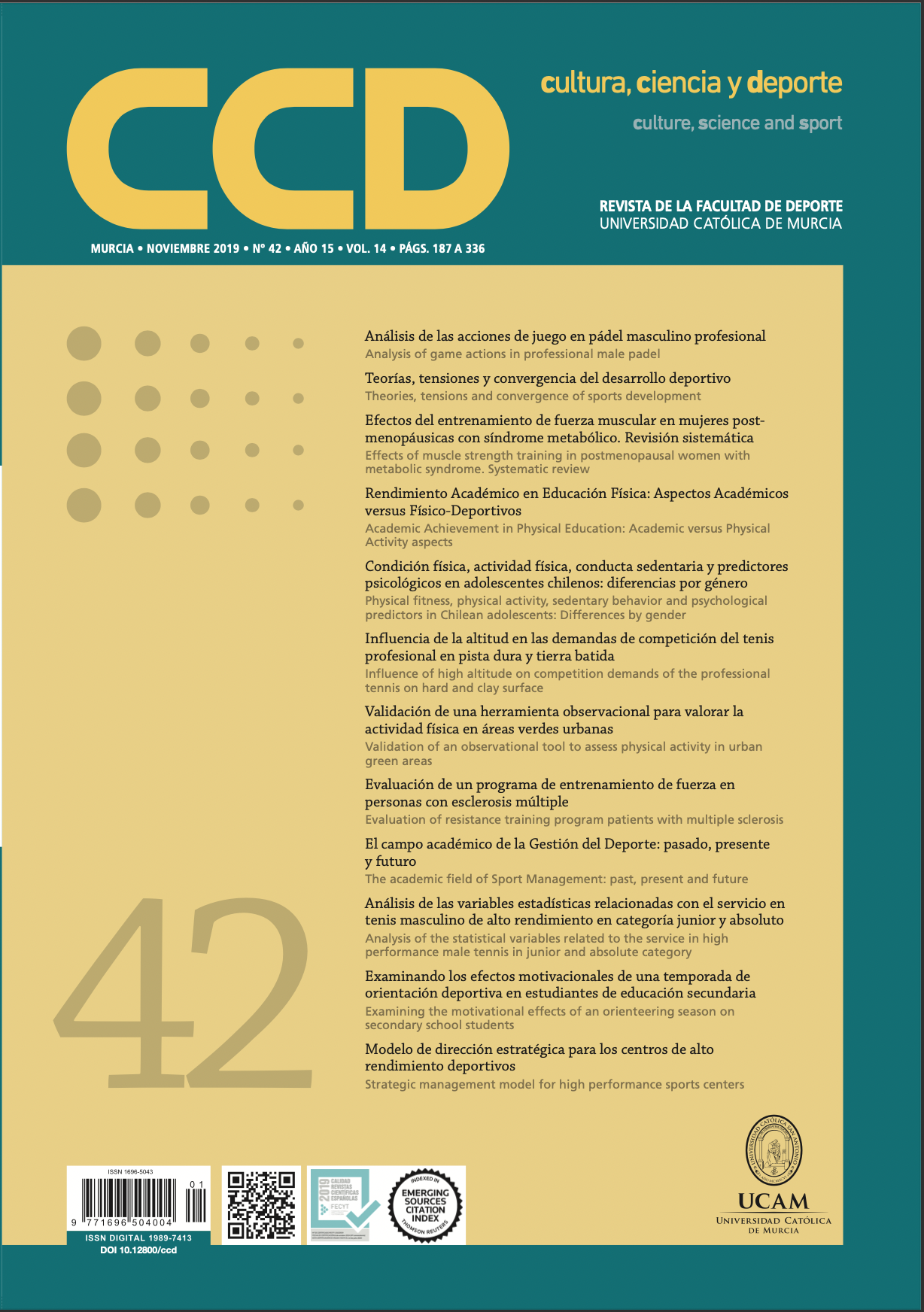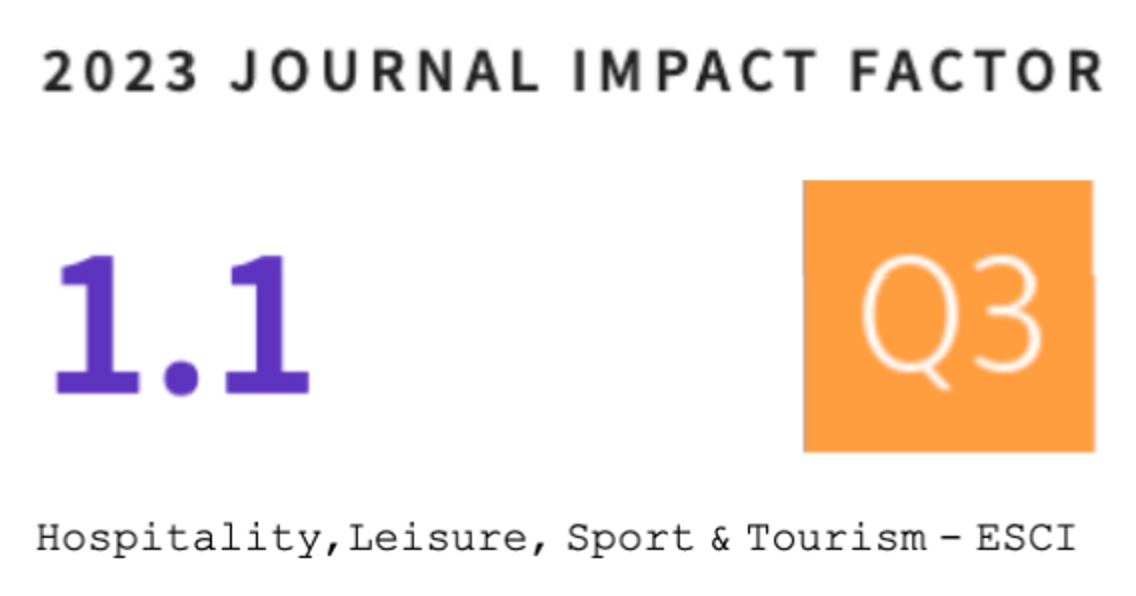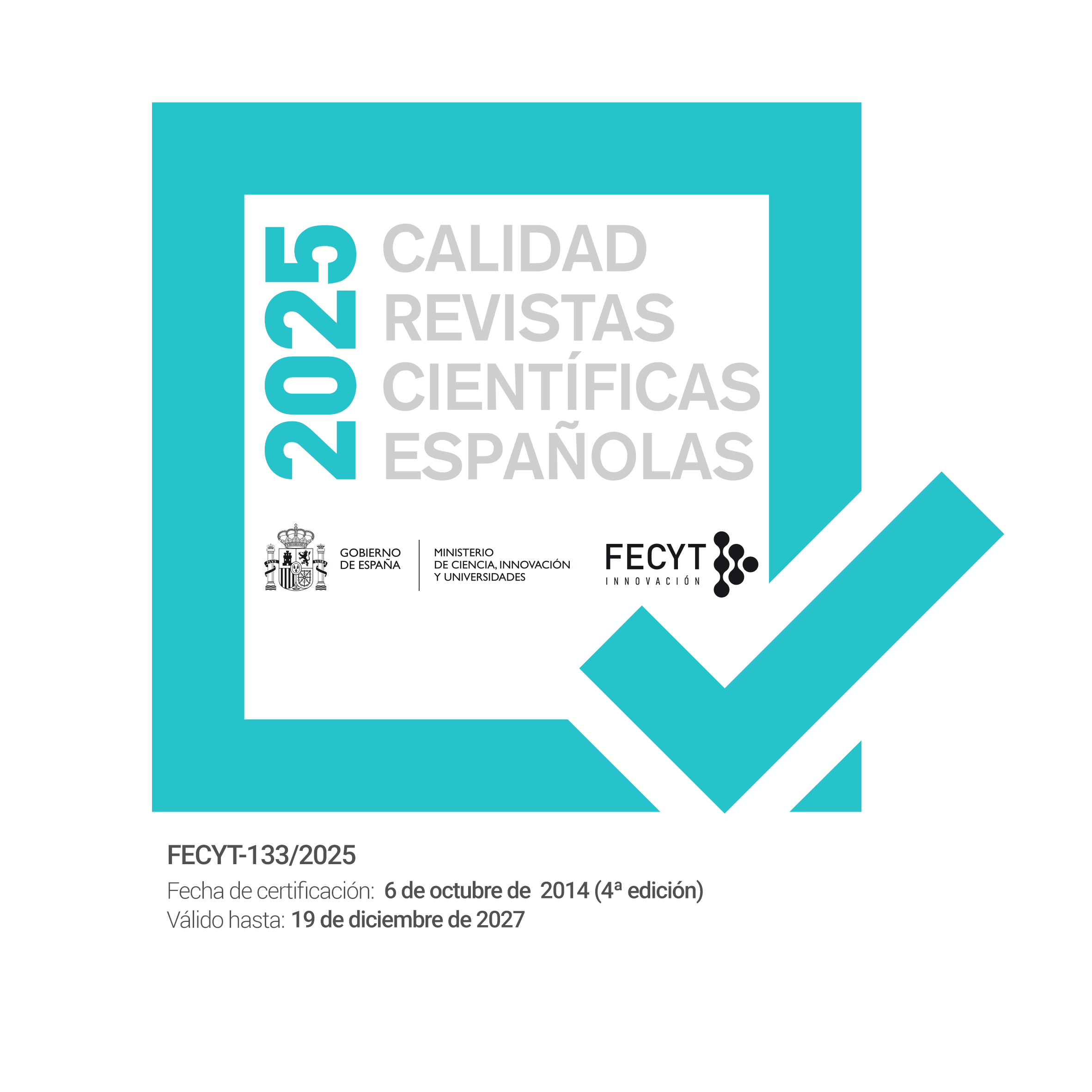Teorías, tensiones y convergencia del desarrollo deportivo. (Theories, tensions and convergence of sports development)
DOI:
https://doi.org/10.12800/ccd.v14i42.1333Palabras clave:
Gestión deportiva, organizaciones deportivas, paradojas, tendencias teóricasResumen
Este artículo tiene como propósito describir las tendencias teóricas, analizar las tensiones emergentes y proponer los puntos de convergencia de las teorías del desarrollo deportivo. A partir de un análisis exploratorio se describieron los distintos enfoques teóricos del desarrollo deportivo, se analizaron las tensiones emergentes de énfasis de política, las ideológicas y las de mercado. Al final, normativamente se proponen los puntos de convergencia de las teorías del desarrollo deportivo. Se concluye que el desarrollo deportivo adopta diferentes énfasis como respuesta a las coyunturas e ideologías políticas y muestra sus principales avances teóricos en la gestión del deporte de elite, sin embargo, la evidencia más extensa se concentra en la influencia del deporte sobre los procesos de cambio social.
=
The purpose of this article is to describe the theoretical tendencies, analyze the emerging tensions and propose the points of convergence of the theories of sports development. From an exploratory analysis of the various theoretical approaches described sports development, the emphasis of political tensions, ideological and market were analyzed. Finally, the points of convergence of sports development theories are proposed. It is concluded that sports development adopts different emphases in response to political situations and ideologies and shows its main theoretical advances in the management of elite sport, however, the most extensive evidence focuses on the influence of sport on the processes of social change.
Citas
Álvarez-Pérez, R., & López-Aguilar, D. (2018). Trayectorias y planificación del proyecto vital y profesional de deportistas de élite. Cultura_Ciencia_Deporte, 13(39), 207-2018. doi:http://dx.doi.org/10.12800/ccd. v1i1.1143
Balyi, I., Way, R., & Higgs, C. (2013). Long term athlete development. Champaign:IL: Human Kinetics.
Bayle, E., & Madella, A. (2002). Development of a taxonomy of performance for national sport organizations. European Journal of Sport Science, 2(2), 1-21. doi:10.1080/17461390200072205
Bayle, E., & Robinson, L. (2007). A framework for understanding the performance of National governing bodies of sport. European Sport Management Quarterly, 7(3), 249-268. doi:10.1080/16184740701511037
Bourdieu, P. (1978). Deporte y clase social, materiales de sociología del Deporte. Congress of the history os sports and physical education association. 17,6, págs. 819-840. Paris: Sage.
Cameron, K., & Quinn, R. (1988). Organizational paradox and transformation. Cambridge, MA: Ballinger.
Camy, J., Clijsen, L., Madella, A., & Pilikington, A. (2004). Vocasport. Improving employment in the field of sport in Europe through vocational training. Vocational education and training field of sport in the European union. Situation, trends and outlook. Lyon: Université Claude Bernal Lyon 1.
Clegg, S., da Cunha, J., & Pina e Cunha, M. (2002). Management paradoxes: A relational view. Human Relations, 55(5), 483-503. doi:10.1177/0018726702555001
Coalter, F. (2005). The Social Benefits of Sport: An Overview to Inform the Community Planning Process. SportScotland Research Report no. 98.
Coalter, F. (2007). Sport-in-Development a monitoring and evaluation manual. Stirling, Scotland: University of Stirling.
Coalter, F. (2010). The politics of sport for development: limited focus programs and broad gauge problems. International review for the sociology of sport, 45(3), 295-314. doi:10.1177/1012690210366791
Collins, M. (2008). Examining Sports Development. London: Routledge.
Cote, J., & Lidor, R. (2013). Conditions of children talent development in sport. Morgantown, WV: Fit publishing.
Cuskelly, G., Boag, A., & McIntyre, N. (1999). Differences in organizational commitment between paid and volunteer administrators in sport. European Journal for Sport Management, 6, 9-61.
De Bosscher, V., Shibli, S., Van Bottenburg, M., De Knop, P., & Truyens, J. (2010). Developing a methodology for comparing the elite sport systems and policies of nations: A mixed research methods approach. Journal of Sport Management, 24, 467-600.
De Bosscher, V., Shibli, S., Westerbeek, H., & Van Bottenburg, M. (2015). Successful elite sport policies. An international comparison of the sports policy factors leading to international sporting succes in 15 nations. Aachen: Meyer & Meyer.
De Bosscher, V., Sotiriadou, P., & van Bottenburg, M. (2013). Scrutinizing the sport pyramid metaphor: an examination of the relationship between elite success and mass participation in Flanders. International Journal of Sport Policy and Politics,, 5(3), 319-339. doi:10.1080/19 406940.2013.806340
De Bosscher, V., Sotiriadou, P., & Van Bottenburg, M. (2013). Scrutinizing the sport pyramid metaphor: an examination of the relationship between elite success and mass participation in Flanders. International Journal of Sport Policy and Politics, 5(3), 319-339. doi:10.1080/19406940.2013.806340
De Croock, S. (2012). The inspirational function of role models for sport participation and development. Proceedings of the 20th conference of the European Association of Sport (pág. 160). Aalborg: University College of Northern Denmark.
Digel, H. (2005). Comparisson of successful sport systems. New studies in athletics, 20(2), 7-18.
DiMaggio, P., & Powell, W. (1983). The Iron Cage Revisited: Institucional Isomorphism and Collective Rationality in Organizaciontal Fields. American Sociological Review, 48(2), 126-153.
Downward, P., & Rasciute, S. (2011). Does sport make you happy? An analysis of the well‐being derived from sports participation. International Review of Applied Economics, 25(3), 331-348. doi:10.1080/0269 2171.2010.511168
Frick, B., & Wicker, P. (2016). The trickle-down effect: how elite sporting success affects amateur participation in German football. Applied Economics Letters, 23, 259-263. doi:10.1080/13504851.2015.1068916
Frisby, W. (1986). The organizational structure and effectiveness of voluntary organizations: The case of Canadian sport governing bodies. Journal of Park and Recreation Administration, 4(3), 61–74.
Galarraga, A., Aldaz, J., & Prat, M. (2018). Claves para el análisis de la evolución y el desarrollo del deporte a través de los estudios de innovación. Cultura_Ciencia_Deporte, 13(39), 267-280. doi:http://dx.doi.org/10.12800/ccd.v1i1.1148
Girginov, V. (2008). Management of sport development. Oxford: Elsevier.
Giulianotti, R. (2011). The Sport Development and Peace Sector: A Model of Four Social Policy Domains. Journal of Social Policy, 40(4), 757-776. doi:10.1017/S0047279410000930
Green, B. (2005). Building sport programs to optimize athlete recruitment, retention and transtion toward a normative theory of sport development. Journal of sport management, 19(3), 233-253.
Green, B. (2008). Sport as an agent for social and personal change. En V. Girginov, Management of sport development (págs. 129-145). Oxford: Taylor & Francis.
Green, M. (2004). Changing policy priorities for sport in England: the emergence of elite sport development as a key policy concern. Leisure studies, 23(4), 365-385. doi:10.1080/0261436042000231646
Green, M. (2007). Olympic glory or grassroots development? Sport policy priorities in Australia, Canada and the United Kingdom, 1960-2006. International Journal of the History of Sport, 24, 921-953. doi:10.1080/09523360701311810
Green, M. (2009). Podium or participation? Analysing policy priorities under changing modes of sport governance in the United Kingdom. International Journal of Sport Policy and Politics, 1(2), 121-144. doi:10.1080/19406940902950697
Green, M., & Houlihan, B. (2005). Elite sport development, policy learning and political priorities. London: Routledge.
Grix, J., & Carmichael, F. (2012). Why do governments invest in elite sport? A polemic. International Journal of Sport Policy and Politics, 4(1), 73-90. doi:10.1080/19406940.2011.627358
Gulbin, J., Crosser, M., Morley, E., & Weissensteiner, J. (2013). An integrated framework for the optimization of sport and athlete development. Journal of sports sciences, 31(12), 1319-1331.
Hallinan, C. (2019). Race relations, Indigenous Australia and the social impact of professional Australian football. En R. Spaaij, The Social Impact of Sport: Cross-Cultural Perspectives (Vol. 12, págs. 112-127). doi:10.4324/9781315875057-9
Hallmann, K., Breuer, C., & Kuhnreich, B. (2013). Happiness, pride and elite sporting success: What population segments gain most from national athletic achievements? Sport Management Review, 16(2), 226- 235. doi:10.1016/j.smr.2012.07.001
Hanson, C., Nabavi, D., & Yuen, H. (2001). The effect of sports on level of community integration as reported by persons with spinal cord injury. American Journal of Occupational Therapy, 55(3), 332-338. doi:10.5014/ajot.55.3.332
Harris, K., & Adams, A. (2016). Power and discourse in the politics of evidence in sport for development. Sport management review, 19(2), 97-106. doi:10.1016/j.smr.2015.05.001
Houlihan, B. (2012). Sport policy convergence: a framework for analysis. European Sport Management Quarterly, 12(2), 111-135. doi:10.1080/16184742.2012.669390
Houlihan, B. (2016). Public sector sport policy: Developing a framework for analysis. International review for the sociology of sport, 40(2), 163-185. doi:10.1177/1012690205057193
Houlihan, B., & Green, M. (2008). Comparative sport elite sport development: systems, structures and public policy. Oxford: Elsevier.
Houlihan, B., & Green, M. (2011). Routledge handbook of sports development. London: Routledge.
Houlihan, B., & White, A. (2002). The politics of sport development. London: Routledge.
Hoye, R., Nicholson, & Houlihan, B. (2010). Sport and Policy: Issues and Analysis. Oxford: Elsevier.
Hull, C., & Lio, B. (2006). Innovation in non profit and for profit organizations: Visionary, strategic and financial considerations. Journal of change management, 6(1), 53-65. doi:10.1080/14697010500523418
Hylton, K. (2013). Sports Development: Policy, Process and Practice. London: Routledge.
Hylton, K., & Bramhan, P. (2008). Sport development: policy, process and practice (2 ed.). London: Routledge.
Kay, T., & Bradbury, S. (2009). Youth sport volunteering: developing social capital? Sport, Education and Society. Sport, Education and Society, 14(1), 121-140.
Kerr, C. (1983). The future of industrial societies: Convergence or continuing diversity? Cambridge, MA: Harvard University Press.
Kikulis, L., Slack, T., Hinings, C., & Zimmermann, A. (1989). A structural taxonomy of amateur sport organizations. Journal of Sport Management, 3, 129-150. doi:10.1123/jsm.3.2.129
Lindsey, I. (2008). Conceptualising sustainability in sports development. Leisure Studies, 27(3), 279–294. doi:10.1080/02614360802048886
Lyras, A., & Welty Peachey, J. (2011). Integrating sport for development theory and praxis. Sport management review, 14(4), 311-326. doi:10.1016/j.smr.2011.05.006
Madella, A., Bayle, E., & Tome, J. (2005). The organisational performance of national swimming federations in Mediterranean countries: A comparative approach. European Journal of Sport Science, 5, 207–220. doi:10.1080/17461390500344644
Martin, K. (2010). Brain boost: Sport and physical activity enhance children’s learning. Perth: School of Population Health. The University of Western Australia.
Nowy, T., Wicker, P., Feiler, S., & Breuer, C. (2015). Organizational performance of nonprofit and forprofit sport organizations. European Sport Management Quarterly, 15(2), 155-175. doi:10.1080/16184742.2014.995691
O’Boyle, I., & Hassan, D. (2014). Performance management and measurement in national-level non-profit sport organisations. European Sport Management Quarterly, 14(3), 299-314. doi:10.1080/16184742.2014.898677
Papadimitriou, D., & Taylor, P. (2000). Organisational effectiveness of Hellenic national sports organisations: A multiple constituency ap proach. Sport Management Review, 3, 23–46. doi:10.1016/S14413523(00)70078-7
Preuss, H. (2013). The Contribution of the FIFA World Cup and the Olympic Games to Green Economy. Sustainability, 3581-3600.doi:10.3390/su5083581
Ratten, V. (2010). Developing a theory of sport-based entrepreneurship. Journal of Management and Organization, 16(4), 557-565.
Ratten, V. (2011). Sport-based entrepreneurship: towards a new theory
of entrepreneurship and sport management. International Entrepreneurship and Management Journal, 7(1), 57-69. doi:10.1007/s11365010-0138-z
Ratten, V., & Ferreira, J. (2016). Sport entrepreuneurship and innovation. London: Routledge.
Rowe, K., & Siefken, K. (2016). Cap. IX. Sport and health promotion. En E. Sherry, N. Schulenkorf, & P. Phillips, Managing sport development (págs. Pos.3110-3439). London: Routledge.
Sánchez, J. (2019). Los eventos deportivos como instrumento de desarrollo local. Cultura_Ciencia_Deporte, 14(41), 91-92.
Scheerder, J. (2007). Recreation sport in Flanders. Growth, size and segmentation of the flemish recreation sport market. Antwerp: F&G partners.
Schulenkorf, N. (2012). Sustainable community development through sport and events: A conceptual framework for Sport for Development projects. Sport Management Review, 15(1), 1-12. doi:10.1016/j.smr.2011.06.001
Schulenkorf, N. (2017). Managing sport-for-development: Reflections and outlook. Sport Management Review, 20(3), 243-251. doi:10.1016/j.smr.2016.11.003
Schulenkorf, N., Sherry, E., & Rowe, K. (2016). Sport for Development: An Integrated Literature Review. Journal of Sport Management, 30(1), 22-39. doi:10.1123/jsm.2014-0263
Sherry, E., Schulenkorf, N., & Chalip, L. (2015). Managing sport for social change: The state of play. Sport management review, 18(1), 1-20. doi:10.1016/j.smr.2014.12.001
Sherry, E., Schulenkorf, N., & Phillips, P. (2016). Managing sports development. London: Routledge.
Shilbury, D., Ferkins, L., & Smythe, L. (2013). Sport governance encounters: Insights from lived experiences. Sport management review, 16(3),349-363. doi:10.1016/j.smr.2012.12.001
Shilbury, D., Sotiriadou, K., & Green, C. (2008). Sport Development. Systems, Policies and Pathways: An Introduction to the Special Issue. Sport management review, 11(3), 217-223. doi:10.1016/S14413523(08)70110-4
Skinner, J., Zakus, D., & Cowell, J. (2008). Development through sport: Building social capital in disadvantaged people. Sport Management Review, 11(3), 253–275.
Smolianov, P., Murphy, J., McMahon, S., & Naylor, A. (2015). Comparing the practices of US Soccer against a global model for integrated development of mass and high-performance sport. Managing Sport and Leisure, 20(1), 1-21. doi:10.1080/13606719.2014.929402
Sotiriadou, K., Shilbury, D., & Quick, S. (2008). The attraction, retention/transition, and nurturing process of sport development: Some Australian evidence. Journal of SportManagement, 22(3), 247-272. doi:10.1123/jsm.22.3.247
Spaaij, R. (2012). Building social and cultural capital among young people in disadvantaged communities: lessons from a Brazilian sportbased intervention program. Sport, Education and Society, 17(1), 77-95. doi:10.1080/13573322.2011.607913
Tao, X. (2006). Sports Industry and Sustainable Development of Sports Economy on Vacation Study Recreation. Journal of Sports and Science, 6, 123-132.
Taylor, P., Davies, L., Wells, P., Gilberston, J., & Tayleur, W. (2015). A review of the Social Impacts of Culture and Sport. London: The Culture and Sport Evidence (CASE).
Tejero-González, C. (2016). On the importance of sport as political action: Reasons and governance measures. Cultura_Ciencia_Deporte, 11(31), 3-6. doi:http://dx.doi.org/10.12800/ccd.v11i31.637
Thibault, L., Slack, T., & Hinings, B. (1991). Professionalism, structures and systems: The impact of professional staff on voluntary organizations. International Review for Sociology of Sport, 26(2), 83-97.
Tobias, N., Pamela, W., Svenja, F., & Christoph, B. (2015). Organizational performance of nonprofit and for-profit sport organizations. European Sport Management Quarterly, 15(2), 155-175. doi:10.1080/16184742.2014.995691
Truyens, J., De Bosscher, V., Sotiriadou, P., Heyndels, B., & Westerbeek, H. (2016). A method to evaluate countries’ organisational capacity: A four country comparison in athletics. Sport management review, 19, 279-292. doi:10.1016/j.smr.2015.05.002
Van Bottenburg, M. (2002). Sport for all and elite sport policy: do they benefit one another? Proceedings world sport for all congress. Proceedings world sport for all congress, Sport for all and elite sport: Rivals or partners? (pág. 25). Ahrnem: NOC*NSF. Recuperado el 31 de Marzo de 2017.
Van Bottenburg, M., Elling, E., Hover, P., Brinkhof, S., & Romijn, D. (2011). The social meaning of elite sport. Utrecht: Mulier Instituut & Universiteit Utrecht. Walsh, R. (2011). Lifestyle and Mental Health. American Psychologist, 66(7), 579-592. doi:10.1037/a0021769
Wicker, P., & Hallmann, K. (2013). A multi-level framework for investigating the engagement of sport volunteers. European Sport Management Quarterly, 13(1), 110–139. doi:10.1080/16184742.2012.744768
Wicker, P., Hallmann, K., & Breuer, C. (2012). Micro and macro level determinants of sport participation. Sport, Business and Management: An International Journal, 2(1), 51-68. doi:10.1108/20426781211207665
Wilson, S., & Lipsey, M. (2000). Wilderness challenge programs for delinquent youth: a meta-analysis of outcome evaluations. Evaluation and Program Planning, 23(1), 1-12. doi:10.1016/S01497189(99)00040-3
Winand, M., Rihoux, B., Qualizza, D., & Zintz, T. (2011). Combinations of key determinants of performance in sport governing bodies. Sport, Business and Management: An International Journal, 1, 234–251. doi:10.1108/20426781111162657
Winand, M., Vos, S., Claessens, M., Thibaut, E., & Scheerder, J. (2014). A unified model of non-profit sport organizations performance: perspectives from the literature. Managing Leisure, 19(2), 121-150. doi:10.1080/13606719.2013.859460
Wittock, H., Laporte, W., & Meerbeek, R. (1991). The development of an instrument with which sports NGBs can evaluate and optimize their management. European Journal for Sport Management, 1, 90-101.
Descargas
Publicado
Cómo citar
Número
Sección
Licencia
Los autores que publican en esta revista están de acuerdo con los siguientes términos:- Los autores conservan los derechos de autor y garantizan a la revista el derecho de ser la primera publicación del trabajo al igual que licenciado bajo una Creative Commons Attribution License que permite a otros compartir el trabajo con un reconocimiento de la autoría del trabajo y la publicación inicial en esta revista.















